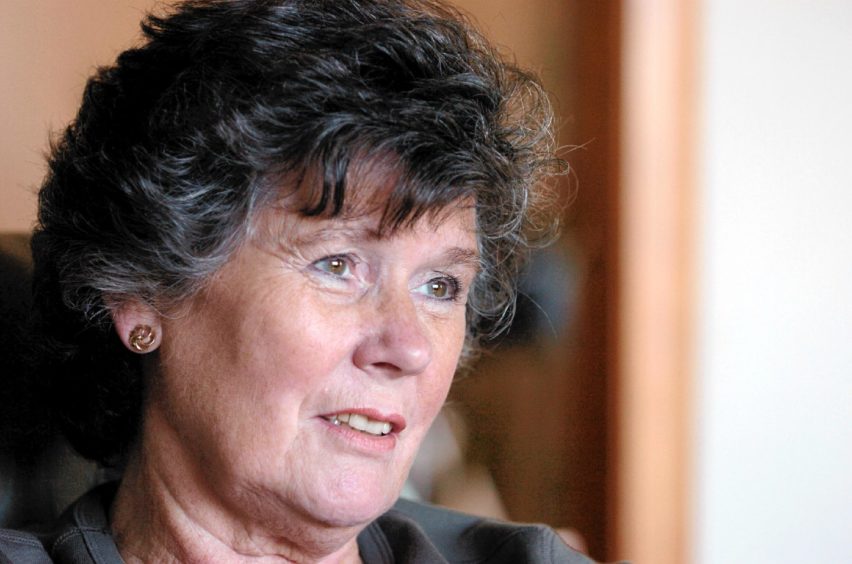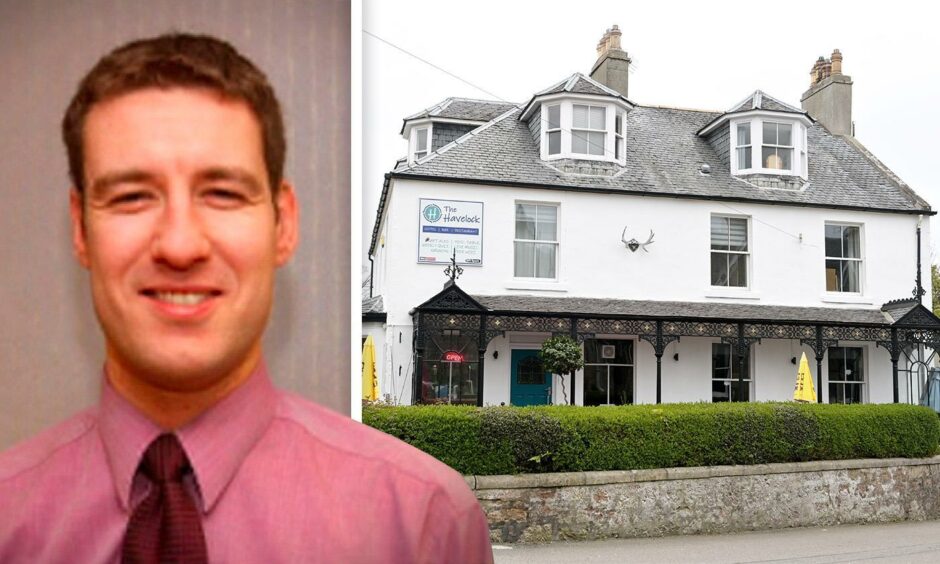The officer leading the Renee and Andrew MacRae murder inquiry has made a direct appeal to their killer to tell police where their bodies are.
William MacDowell was convicted of murdering his former lover Renee and their three-year-old son Andrew in November 1976 at the High Court in Inverness on Thursday.
The three-week trial has finally cracked one of Scotland’s longest-running unsolved mysteries.
There have been numerous re-investigations since Renee and Andrew disappeared.
While police are delighted to have finally caught their killer, the case’s lead officer insists their work is not yet done.
Detective Chief Inspector Brian Geddes was appointed to lead the re-investigation in 2018.
He said: “It was a dual objective from the word go.
“To find the person or persons responsible for the murders of Renee and Andrew, and also to recover their bodies.
“The second objective is still outstanding.”
A race against time
MacDowell’s health was a key consideration for the police and Crown Office as they raced to complete the case.
When his wife Rosemary took the stand she told the court he was a “walking dead man”, suffering from problems with his heart, liver and kidney.
DCI Geddes said: “We were worried about his declining health costing us the chance to complete this case, absolutely.
“We had completed the main thrust of our investigation by Christmas 2019.
“We have been aware of his issues for some time. So there was a real worry we wouldn’t get to this point.”
After keeping quiet for nearly 46 years, it seems unlikely that MacDowell will suddenly begin co-operating with the police.
But officers will press him, hoping that with nothing to lose he’ll help police find the remaining missing pieces of the mystery.
DCI Geddes said: “You have got to be optimistic. You have to hope he is somehow going to be willing to engage with me or someone and reveal the whereabouts of Renee and Andrew.
“There is no point in being pessimistic about it, we have to keep going.
“Now that we’ve reached this stage, our next step is to attempt re-engagement with him and see if he is willing to speak.”
The witnesses who didn’t live to see justice served
Before news of MacDowell’s arrest broke in 2019, there can’t have been many people left in Inverness who thought we’d one day see someone convicted in this case.
The passage of time meant numerous witness statements were read out by police.
That’s because the people who gave them had long since died.
There were other key witnesses who are still alive that were unable to take the stand on health grounds, including Renee’s best friend Val Steventon.
Among the ones that did make it to the High Court witness box, were two people in their 90s.
Detective Chief Inspector Geddes said: “I’ve never been involved in a trial with so much evidence from beyond the grave.
“It is really sad that we have lost so many witnesses, even from our re-investigation in 2018.
“And there are those who haven’t passed away who have not been fit to give evidence.
“Valerie Steventon is the prime example. We wouldn’t be here if it wasn’t for her being Renee’s confidante.”
Will the Renee and Andrew MacRae case provide hope other long-running mysteries can be solved?
One of the first questions that will be asked after a conviction nearly 46 years after the event will be: why did it take so long?
Were there opportunities to get this done a lot sooner?
MacDowell has lived almost all of his life as a free man. According to his wife, he doesn’t have much time left.
Those questions may be valid.
But Police Scotland have been quick to say that the conviction wouldn’t have been possible without the power of work put in by previous major investigations in 1976, 1987 and 2004.
The 2018 version “enhanced” some of the evidence they already had. It enjoyed the benefit of having a dedicated team re-examining every scrap of information for more than a year.
The ability to do that, and ultimately succeed, offers fresh hope that other long-running cases stand a chance of being solved.
In the Highlands, eyes will turn to the murder of Nairn banker Alistair Wilson on his doorstep in 2004.
Investigations are continuing into that case. They have recently focused on a planning application for decking across the street from his Crescent Road home.
“In recent times, there has been a number of examples of decades-old cases brought to court and ended in a successful conclusion,” said DCI Geddes.
“There is a real commitment in this organisation. Reviewing unresolved cases will be a priority, a focus and resources will be found to move these investigations on.
“And hopefully to a similar conclusion as this one.”




Conversation